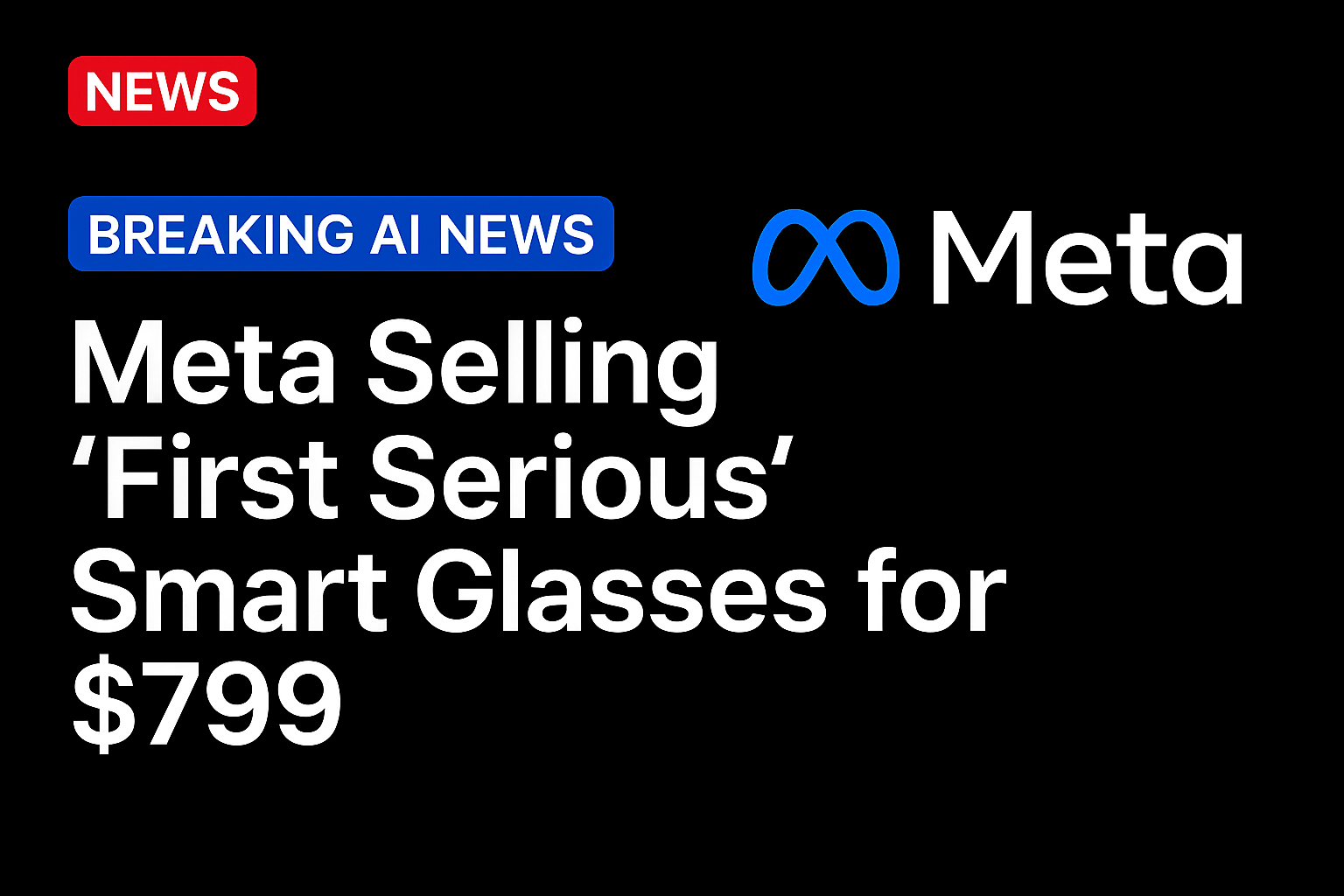
Meta has unveiled its artificial intelligence (AI)-powered smart glasses with a built-in screen.
The Meta Ray-Ban Display, introduced by CEO Mark Zuckerberg at an event Wednesday (Sept. 17) and set to sell for $799, features a screen that can display text messages, video calls, photos and the results of queries to Meta’s AI service.
“And it isn’t on all the time — it’s designed for short interactions that you’re always in control of,” Meta’s announcement said. “This isn’t about strapping a phone to your face. It’s about helping you quickly accomplish some of your everyday tasks without breaking your flow.”
Meta says each pair comes with the Meta Neural Band, an EMG wristband that translates the signals created by the user’s muscles into commands for the glasses.
Speaking to Bloomberg News before launch, Meta Chief Technology Officer Andrew Bosworth, described the glasses as “the first serious product” of their kind.
The report notes that the launch is part of Meta’s push to develop its own line of consumer technology products as it competes with Google and Apple.
“This feels like the kind of thing where you can start to keep your phone in your pocket more and more throughout the day,” Bosworth said. He added that while phone isn’t going away, glasses provide a more convenient way to interact with its most popular features.
“Glasses are the ideal form factor for personal super intelligence because they let you stay present in the moment while getting access to all of these AI capabilities to make you smarter, help you communicate better, improve your memory, improve your senses,” Zuckerberg said at the event.
The glasses, set to go on sale Sept. 30, will be sold by Ray-Ban, Lenscrafters, Best Buy and a limited number of Verizon stores.
PYMNTS explored the role AI plays in efforts to develop smart glasses earlier this year in an interview with David Jiang, a former Google executive and CEO of smart glass company Viture.
AI makes smart glasses “more intuitive and practical for everyday use, whether you’re streaming, gaming or navigating the world around you,” Jiang told PYMNTS.
Research by PYMNTS Intelligence has shown people often use connected devices to multitask, something smart glasses allow them to do. And this versatility is key. Jiang said when he was at Google, he saw firsthand why Google Glass didn’t take off.
“People didn’t have a reason to wear it every day.” He believes it’s different today. “5G is here. Cloud gaming is mainstream. Streaming services are everywhere. Consumers want a better way to experience content without being tethered to a small screen.”
Source: https://www.pymnts.com/




